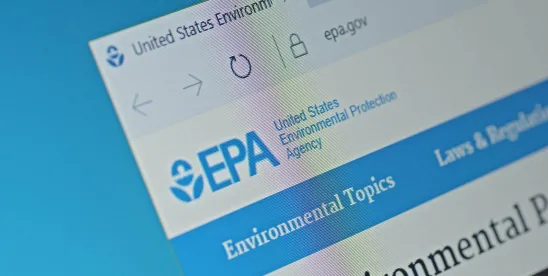On December 6, 2024, the U.S. Environmental Protection Agency (EPA) announced that it has issued its first voucher under its Vector Expedited Review Voucher (VERV) Program as a result of a recent approval by EPA of a new active ingredient, Wolbachia pipientis wAlbB strain. The VERV Program, which is required by the Pesticide Registration Improvement Act of 2022 (PRIA 5) and announced in December 2023, was developed in response to ongoing challenges with mosquito control due to developing resistance to currently registered pesticides. VERV gives companies incentives to develop novel or unique mosquito control products to help prevent the spread of mosquito-borne diseases like malaria, dengue, and Zika.
The pesticide product associated with this new active ingredient, WB1 Males, was registered by EPA in April 2024 for commercial use as a population suppression tool for Aedes aegypti mosquitoes, which are a known vector of several serious illnesses, including dengue, chikungunya, and Zika. Male Ae. aegypti are infected with the naturally occurring bacterium, wAlbB, which is derived from the Ae. albopictus mosquito; the wAlbB bacterium is not naturally present in Ae. aegypti mosquitoes. When a female does not carry a compatible Wolbachia strain, eggs produced from a mating event will not be viable due to a process called cytoplasmic incompatibility. EPA states that WB1 Males thus prevents population growth by reducing reproductive success in areas where the product is continually released over time. The use of this particular Wolbachia bacteria strain within the males is a novel mode of action for the Aedes aegypti species, which has had reported resistance to a range of mosquito insecticides.
EPA states that under the VERV Program, it may issue a voucher to the registrant of a new, qualifying pesticide product for mosquito control after it is successfully registered. Vouchers may be sold or transferred to other registrants. An applicant may then redeem this voucher when submitting a future application for a different product under one of the six specified PRIA codes. EPA will then expedite its review of the new application, potentially providing a shorter time to market for the product involved. EPA notes that issuance of a voucher in no way is to be construed as its endorsement or recommendation of this product.
EPA concluded after review of the submitted data, that WB1 Males met the required criteria for VERV Program eligibility:
- 1. Proven Efficacy: After different trials showed population reductions of 68-95 percent, EPA concluded that the product can be expected to provide population suppression over a minimum of a 20-acre contiguous area.
- 2. Novel Mode of Action: The use of Wolbachia with the WB1 Males product is novel for the species, Ae. aegypti.
- 3. Targets Mosquitoes Capable of Spreading Diseases: The target pest, Ae. aegypti, is a vector of a number of human diseases, including yellow fever, chikungunya, dengue, and Zika viruses.
- 4. Accessibility and Global Access Plan: The registrant submitted a plan addressing the manufacture, distribution, procurement, and pricing processes for foreign vector control programs for the use of WB1 Males.
- 5. Broadens Integrated Pest Management Strategies: The label for WB1 Males indicates that the product is intended to be used as part of a mosquito control program.
- 6. New Product Containing a New Active Ingredient: No products containing the active ingredient, Wolbachia wAlbB strain, have been previously registered by EPA for use against Ae. aegypti.
Additional information on the final registration decision and supporting documents for WB1 Males is available at docket ID EPA-HQ-OPP-2020-0028 on www.regulations.gov.
Commentary
In theory, VERV is a very promising program — incentivizing registrants to think outside of the box and protecting human health. But only time will tell if a voucher is the golden ticket to an expedited review. On its website, EPA already qualifies its end of the bargain with a wide range of reasons why the review may not be expedited: “As with any pesticide application, the quality of the application for which a voucher is redeemed can impact EPA’s ability to complete its review within the specified deadline. Other issues such as scientific or use complexity, incomplete or insufficient data sets, or endangered species considerations, may also impact deadlines. For these reasons and others, there may be challenges to EPA’s ability being able to meet an expedited timeframe for an application submitted under the proposed expedited voucher program.” By EPA’s own admission, these many considerations require significant resources and time, and have caused challenges in meeting even non-expedited deadlines.
Although not a guarantee, the potential for an expedited or even simply a more predictable deadline for a decision could be of great value to a future registration applicant. That would provide incentive for entering or investing resources in the VERV Program — which was a stated goal of the program at the outset.




 />i
/>i
